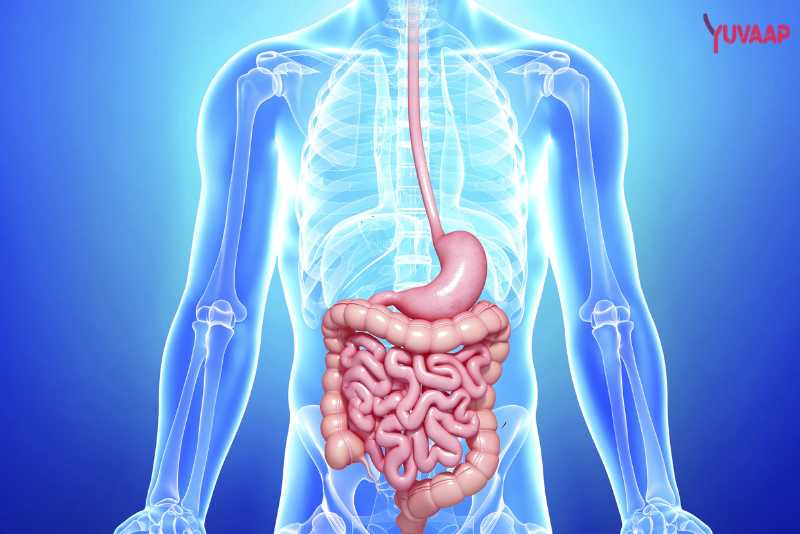Have you ever wondered why quality sleep is so important for your brain? Imagine a nightly cleansing process that not only refreshes your body but also detoxifies your brain, enhancing your cognitive functions and emotional well-being. Sounds incredible, right? However, you might be thinking, Is this really backed by science?” or “How can I realistically improve my sleep with my busy schedule? These are valid concerns, and this blog will address them while exploring the fascinating connection between sleep and brain health.
Scientific research shows that during deep sleep, our brains engage in a powerful detoxification process through the glymphatic system, which is up to ten times more active during sleep than when we’re awake. This system flushes out harmful toxins that accumulate during the day, such as beta-amyloid and tau proteins linked to Alzheimer’s disease. You might be skeptical about these claims, but we’ll dive into the studies that support these findings and explain how you can harness the power of quality sleep to improve your brain health.
Are you worried about health issues affecting your sleep? We’ll discuss how holistic wellness practices like yoga and meditation can complement medical treatments and help you achieve better sleep, even if you’re dealing with health challenges. And if your sleep environment isn’t ideal, we’ll offer simple, cost-effective solutions to create a more sleep-friendly space.
We know that limiting screen time before bed can be tough, especially with work demands and personal habits. We’ll suggest practical alternatives and explain how to manage screen time effectively to promote better sleep.
Stay tuned as we uncover the secrets of how quality sleep can transform your brain and overall health, addressing your concerns and providing actionable advice along the way. Watch this video on the Healing and Sleeping Cycle | Effects of Sleep Deprivation on Your Body and Mind
The Science Behind Sleep and Brain Health
Quality sleep is more than just a rest period for our bodies; it’s a crucial time for our brains to undergo various processes that support overall health and function. Research says that Our sleep cycles are divided into stages, each playing a vital role in maintaining brain health.
1. Stages of Sleep:
- NREM (Non-Rapid Eye Movement) Sleep: This phase includes light sleep and deep sleep. Deep sleep is especially important for brain health as it’s the period when the brain undergoes most of its restorative processes.
- REM (Rapid Eye Movement) Sleep: This stage is associated with dreaming and is crucial for cognitive functions like memory consolidation and learning.
2. The Glymphatic System:

- During deep sleep, the brain activates the glymphatic system, which functions like a waste disposal system. This system uses cerebrospinal fluid (CSF) to flush out toxins and waste products accumulated during the day.
- Research has shown that the glymphatic system is up to ten times more active during sleep than during wakefulness, emphasizing the importance of quality sleep for removing toxins from the brain.
3. Brain Detoxification:

- According to research, Toxins such as beta-amyloid and tau proteins, which are linked to Alzheimer’s disease, are efficiently cleared out during deep sleep. This process reduces the risk of neurodegenerative diseases and supports overall brain health.
- Adequate sleep helps maintain the balance of neurotransmitters and supports the brain’s natural repair mechanisms.
Understanding these scientific processes highlights why quality sleep is essential for mental clarity, emotional stability, and long-term cognitive function.
How Quality Sleep Removes Toxins
Now that we understand the science behind sleep, let’s dive deeper into how quality sleep helps in removing toxins from the brain.
- Glymphatic System Activation:
- The glymphatic system is a network of pathways that help remove waste products from the brain. During deep sleep, cerebrospinal fluid flows more freely through the brain, washing away harmful waste.
- This process is similar to a dishwasher cycle, where the brain’s cells shrink to allow more space for the CSF to clean out the toxins.
- Role of Cerebrospinal Fluid:
- Cerebrospinal fluid surrounds the brain and spinal cord, providing protection and removing waste.
- During sleep, the flow of CSF increases, which helps clear out metabolic waste products like beta-amyloid and tau proteins.
- Deep Sleep and Detoxification:
- Deep sleep stages, particularly NREM sleep, are crucial for the activation of the glymphatic system.
- Studies have shown that people who get sufficient deep sleep have lower levels of beta-amyloid and other toxins in their brains.
- Supporting Research:
- Numerous studies support the link between quality sleep and brain detoxification. For example, a study published in the journal Science found that sleep deprivation leads to an increase in beta-amyloid accumulation, which is associated with Alzheimer’s disease.
By ensuring we get enough deep sleep, we can enhance the brain’s ability to detoxify itself, leading to improved mental clarity and reduced risk of cognitive decline.
Benefits of Removing Toxins from the Brain
Quality sleep plays a crucial role in maintaining brain health by facilitating the removal of toxins. Here are some of the key benefits of this detoxification process:
1. Improved Mental Clarity:

- When the brain is free from toxins, cognitive functions like thinking, learning, and memory significantly improve. This clarity helps in making better decisions and solving problems more efficiently.
2. Reduced Risk of Neurodegenerative Diseases:

- The accumulation of toxins such as beta-amyloid and tau proteins is linked to Alzheimer’s disease and other neurodegenerative conditions. By ensuring quality sleep, we help the brain clear these harmful substances, potentially reducing the risk of such diseases.
3. Enhanced Memory and Learning:

- According to research, Deep sleep stages are critical for memory consolidation. During these stages, the brain processes and stores information gathered throughout the day. Removing toxins from the brain ensures these processes function optimally, leading to better retention and recall.
4. Better Emotional Regulation:

- Research says that A well-rested brain is better equipped to manage emotions. Quality sleep helps regulate mood and reduces the risk of anxiety and depression by ensuring that neurotransmitter levels are balanced and that the brain’s emotional centers function correctly.
5. Overall Mental Health Benefits:

- Regular detoxification of the brain through quality sleep supports overall mental health. It helps maintain a balanced mental state, reduces stress levels, and enhances resilience against mental health disorders.
Understanding these benefits underscores the importance of prioritizing good sleep hygiene to maintain and improve brain health. Ensuring quality sleep is a natural and effective way to detoxify the brain and support overall well-being.
Can You Detox Your Brain Through Sleep?
Many people wonder, can you detox your brain through sleep? The answer is a resounding yes. Here’s how it works and some common misconceptions about brain detoxification:
- The Realistic Approach to Brain Detox:
- Detoxifying the brain is a natural process that occurs during deep sleep. The glymphatic system becomes highly active, using cerebrospinal fluid to flush out waste products. This system is most efficient when we achieve quality sleep, particularly during the deeper stages.
- Debunking Myths:
- Myth: Brain detox can be achieved through special diets or supplements alone.
- Reality: While a healthy diet supports overall brain function, the primary mechanism for brain detoxification is the glymphatic system, which requires quality sleep to function effectively.
- Myth: Short naps can replace a full night’s sleep for detoxification.
- Reality: While naps can provide short-term benefits, the deep stages of NREM sleep necessary for significant brain detoxification typically occur during a full night’s sleep cycle.
- Myth: Brain detox can be achieved through special diets or supplements alone.
- The Role of Lifestyle in Brain Detox:
- Diet and Nutrition: Consuming a balanced diet rich in antioxidants supports brain health and complements the detoxification process. Foods such as berries, nuts, and leafy greens can enhance cognitive function.
- Physical Activity: Regular exercise promotes better sleep quality, which in turn aids brain detoxification. Activities like yoga and gym workouts help reduce stress and improve sleep patterns.
- Stress Management: Practices like meditation and mindfulness reduce stress, leading to improved sleep quality. Lower stress levels allow for better functioning of the glymphatic system during sleep.
- Scientific Evidence:
- Studies have consistently shown that deep sleep is critical for brain detoxification. Research indicates that insufficient sleep can lead to the accumulation of neurotoxins, increasing the risk of cognitive decline and neurodegenerative diseases.
By understanding that quality sleep is essential for brain detoxification, individuals can make informed choices about their sleep habits and overall lifestyle. Prioritizing sleep, along with a healthy diet, regular exercise, and effective stress management, forms a comprehensive approach to maintaining brain health and overall wellness.
5 Tips for Enhancing Sleep Quality
Achieving quality sleep is essential for brain health and overall well-being. Here are five practical tips to help enhance your sleep quality:
1. Establish a Consistent Sleep Routine:
- Going to bed and waking up at the same time every day helps regulate your body’s internal clock. This consistency makes it easier to fall asleep and wake up feeling refreshed.
- Create a relaxing bedtime routine. Engage in calming activities such as reading, gentle stretching, or meditation before bed.
2. Create a Sleep-Friendly Environment:
- Ensure your bedroom is conducive to sleep. Keep it cool, quiet, and dark. Consider using blackout curtains, earplugs, or a white noise machine to minimize disturbances.
- Invest in a comfortable mattress and pillows that provide adequate support and comfort.
3. Watch Your Diet and Exercise:
- Avoid heavy meals, caffeine, and alcohol close to bedtime. These can disrupt sleep patterns and prevent you from falling asleep or staying asleep.
- Regular physical activity can promote better sleep. Engage in activities like yoga, walking, or gym workouts, but try to avoid vigorous exercise close to bedtime. Try this Yoga Session for Better Sleep, Improve Memory & Increase Concentration
4. Manage Stress and Anxiety:
- High-stress levels can interfere with sleep quality. Practice stress-reducing techniques such as deep breathing exercises, mindfulness meditation, or journaling to calm your mind before bed. Check out these Eight Science-Based Breathing Techniques for Sleep for more detailed guidance.
- Incorporate relaxation techniques into your daily routine to manage stress levels effectively. Discover the Best Relaxation Techniques to Manage Stress for more ideas.
5. Limit Screen Time Before Bed:
- The blue light emitted by screens on phones, tablets, and computers can interfere with your body’s production of melatonin, a hormone that regulates sleep.
- Try to avoid using electronic devices at least an hour before bedtime. Instead, engage in relaxing activities that promote sleep.
By incorporating these tips into your daily routine, you can significantly improve the quality of your sleep, which in turn will support better brain health and overall well-being. For those struggling with insomnia, here are top tips for better sleep that can provide additional help.-
Real-Life Impact of Quality Sleep on Brain Health
Quality sleep has a profound impact on brain health, as evidenced by numerous real-life examples and studies. Here are a few stories that highlight the transformative power of good sleep:
- Enhanced Cognitive Function and Memory:
- Many people have experienced noticeable improvements in their cognitive abilities and memory retention after prioritizing quality sleep. For instance, students who established regular sleep routines reported better focus, improved grades, and enhanced memory recall during exams.
- Reduced Risk of Neurodegenerative Diseases:
- A study published in the journal Science highlighted the connection between sleep and the reduction of beta-amyloid levels in the brain, a protein linked to Alzheimer’s disease. Individuals who consistently achieved deep sleep stages showed a lower risk of developing neurodegenerative conditions.
- Improved Emotional Regulation:
- Those who have struggled with anxiety and depression often find significant relief after improving their sleep habits. Better sleep helps balance neurotransmitter levels, resulting in more stable moods and better emotional control.
- A corporate professional named Priya managed her work-related stress better after incorporating relaxation techniques and improving her sleep quality. She found herself feeling more resilient and emotionally balanced, which positively impacted her performance at work.
- Boosted Overall Mental Health:
- Improved sleep quality can lead to better overall mental health. Individuals who have dealt with chronic stress or burnout reported feeling more energized and mentally sharp after establishing good sleep hygiene practices.
- One such case is that of a 45-year-old entrepreneur, Dev, who experienced frequent burnout due to his demanding schedule. By prioritizing quality sleep, he noticed a significant increase in his productivity and a reduction in stress levels, which contributed to a more positive outlook on life.
Conclusion
Quality sleep is not just a luxury but a necessity for maintaining optimal brain health and overall well-being. Through the activation of the glymphatic system during deep sleep, our brains effectively remove toxins, which improves cognitive functions, enhances emotional regulation, and reduces the risk of neurodegenerative diseases.
By understanding and leveraging the benefits of quality sleep, we can significantly improve our mental clarity, memory, and emotional stability. This, in turn, supports better performance in both our personal and professional lives. Incorporating holistic wellness practices such as maintaining a consistent sleep routine, creating a sleep-friendly environment, managing diet and exercise, reducing stress, and limiting screen time can all contribute to achieving better sleep quality.
Real-life examples demonstrate the profound impact of quality sleep on brain health. From improved cognitive function and emotional balance to reduced risks of serious health conditions, the benefits are clear and compelling. Prioritizing sleep is a simple yet powerful way to invest in our long-term health and well-being.
Remember, achieving quality sleep is about more than just feeling rested; it’s about empowering your brain to perform at its best. By making sleep a priority and following the tips provided, you can unlock the transformative power of quality sleep and enjoy a healthier, more vibrant life.
FAQs
References
https://www.ncbi.nlm.nih.gov/books/NBK526132
https://www.ncbi.nlm.nih.gov/pmc/articles/PMC3768102/ https://www.ncbi.nlm.nih.gov/pmc/articles/PMC7181893/

Priyanka Khurana Goyal is a prominent Indian figure renowned for her diverse accomplishments and contributions across various fields.. Read more



